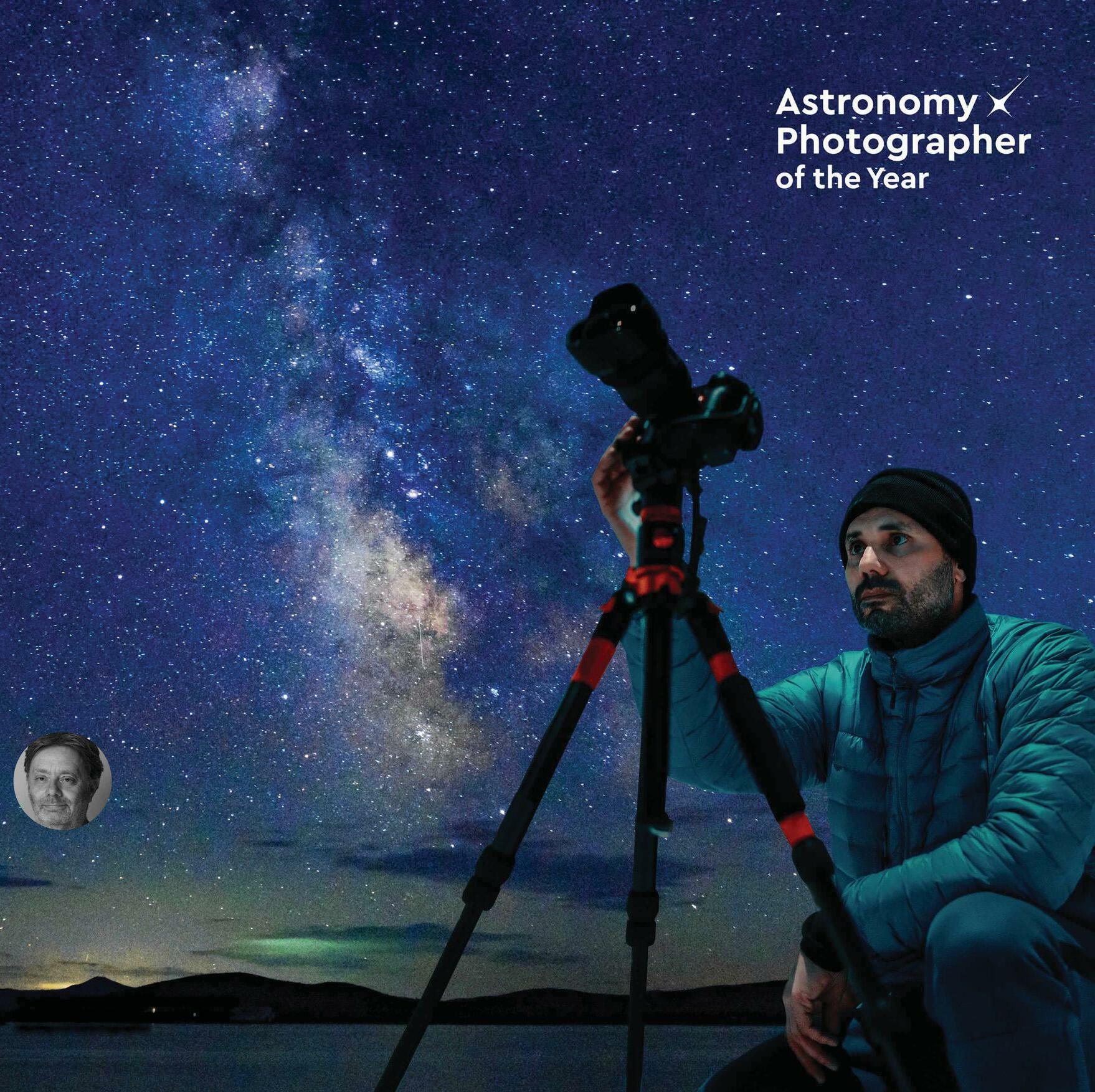First date with a DSLR
BBC Sky at Night Magazine
|February 2023
Taking nightscapes and Star trails with a DSLR camera Is a great way to get started In astrophotography. Stuart Atkinson gives his best tips for beginners
-

The cameras that are built in our smartphones are incredible pieces of technology. Today, many people use their smartphone cameras to capture images of the night sky using 'Night' or 'Low Light' settings, or even dedicated apps. These are great for photos of bright things, such as lunar haloes, planetary conjunctions, and bright comets, but eventually, anyone wanting to take astrophotos of constellations, nebulae, and other celestial delights will have to consider a better option. They need to bite the bullet and buy what many people still consider 'a proper camera' - a DSLR, or Digital Single Lens Reflex camera.
The only problem is, then they have to use it...
This feature is going to take you by the hand and lead you gently through the minefield of taking and processing your very first astrophotos. After that, you can start experimenting with settings and composition to make your photos even better.
There's no better time to make a start, as the Astronomy Photographer of the Year Awards 2023 has just opened for entries. The awards have a special prize for newcomers who have only recently started taking astrophotos - perhaps one of yours could be the one to take home the prize.
But first, let's get started with your first photo!

Setting up your equipment
Getting the right kit is key to getting a good first photo
Denne historien er fra February 2023-utgaven av BBC Sky at Night Magazine.
Abonner på Magzter GOLD for å få tilgang til tusenvis av kuraterte premiumhistorier og over 9000 magasiner og aviser.
Allerede abonnent? Logg på
FLERE HISTORIER FRA BBC Sky at Night Magazine

BBC Sky at Night Magazine
MOONWATCH
January's top lunar feature to observe
2 mins
January 2026

BBC Sky at Night Magazine
Speed up your processing workflow
How to use Photoshop's Actions tool to drastically cut your processing time
3 mins
January 2026

BBC Sky at Night Magazine
Chasing Canada's polar lights
With solar maximum peaking and a new Moon promising dark skies, Jamie Carter travels to Churchill, Manitoba to hunt the Northern Lights - and dodge polar bears – in Canada's far north
7 mins
January 2026

BBC Sky at Night Magazine
Beyond Pluto: The search for the hidden planets
Could one – or even two - undiscovered planets lurk at the edges of our Solar System? Nicky Jenner explores how close we are to finding the elusive 'Planet 9'
6 mins
January 2026

BBC Sky at Night Magazine
Jupiter moon events
Jupiter is a magnificent planet to observe.
2 mins
January 2026

BBC Sky at Night Magazine
What samples from space have taught us
Alastair Gunn explains what scientists have learnt in the 20 years since the first unmanned mission brought materials back from alien worlds
3 mins
January 2026

BBC Sky at Night Magazine
The Milky Way as you've never seen it before
This is the largest low-frequency radio colour image of our Galaxy ever assembled
1 min
January 2026

BBC Sky at Night Magazine
Merger of ‘impossibly' massive black holes explained
Scientists discover how enormous, fast-spinning black holes can exist after all
1 mins
January 2026

BBC Sky at Night Magazine
Lunar occultation of the Pleiades
BEST TIME TO SEE: 27 January from 20:30 UT
1 min
January 2026

BBC Sky at Night Magazine
The Universe's expansion may be slowing down
New study suggests current theories of dark energy could be wrong
1 mins
January 2026
Translate
Change font size

